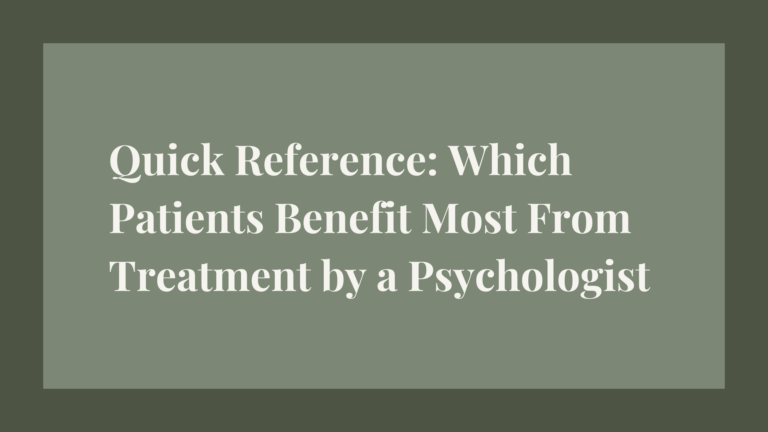Understanding the Difference Between Psychologists and Psychiatrists in Australia: ADHD and Autism Assessments
When navigating assessments for ADHD and Autism, understanding the roles of psychologists and psychiatrists can help you decide who to seek assistance from. Both professions…
When navigating assessments for ADHD and Autism, understanding the roles of psychologists and psychiatrists can help you decide who to seek assistance from. Both professions are vital in supporting individuals’ mental health, but their training, scope of practice, and roles differ significantly. Below, we explore these differences in the context of ADHD and Autism assessments and provide insights into pathways for support and funding.
Psychologists: Experts in Assessment and Strategy
Psychologists are trained professionals specialising in understanding thoughts, emotions, and behaviours. They use evidence-based techniques to assess and provide interventions for a variety of mental health concerns. Importantly, psychologists do not prescribe medication; instead, they focus on therapeutic strategies and skill-building to help manage symptoms and improve daily functioning.
For ADHD:
- Psychologists play a key role in identifying ADHD traits through comprehensive assessments, often involving interviews, questionnaires, and standardised tests.
- Once a diagnosis is made, psychologists provide strategies and interventions to manage symptoms such as inattention, impulsivity, and hyperactivity. These might include cognitive-behavioural therapy (CBT), organisational skills training, and emotional regulation techniques.
For Autism:
- Psychologists are often one of the primary professionals conducting Autism Spectrum Disorder (ASD) assessments. This typically involves developmental history interviews, behavioural observations, and diagnostic tools like the MIGDAS-2.
- Following a diagnosis, psychologists offer therapeutic support tailored to the individual’s needs, including psychoeducation and strategies for managing sensory sensitivities or anxiety.
Psychiatrists: Medical Specialists in Mental Health
Psychiatrists are medical doctors with specialised training in diagnosing and treating mental health disorders. Their medical background enables them to prescribe medication, which is particularly important for some conditions.
For ADHD:
- A psychiatrist’s involvement is essential if you are considering medication as part of ADHD management. Medications such as stimulants or non-stimulants can be effective in reducing core symptoms.
- Psychiatrists may also address co-occurring conditions, such as anxiety or depression, that commonly accompany ADHD.
For Autism:
- While psychiatrists can diagnose Autism, this is less common as psychologists typically lead the assessment process.
- Psychiatrists may provide support for associated mental health challenges such as anxiety, depression, or severe behavioural concerns, often through a combination of medication and therapy.
NDIS Funding Considerations for Adults
The National Disability Insurance Scheme (NDIS) can provide funding to support individuals with ADHD or Autism, but there are specific requirements to consider:
- For Autism assessments to be accepted by the NDIS, documentation from a clinical psychologist or a multidisciplinary team is generally required. However, there is discretion in NDIS decisions, and assessments by general psychologists may sometimes be accepted (Please note, we cannot guarantee this as experiences of clients and psychologists have varied).
- ADHD is not typically funded as a primary diagnosis under the NDIS, but individuals may receive support if they have co-occurring conditions that meet eligibility criteria.
Choosing the Right Professional for Your Needs
When seeking assistance:
- If you are considering medication for ADHD, start with a referral to a psychiatrist. Your GP can provide a referral to a specialist.
- For Autism assessments or strategies to manage ADHD or Autism-related challenges, a psychologist is often the best starting point. Psychologists can provide detailed assessments and practical strategies to improve daily life.
Our Services
At our clinic, we provide psychological assessments and therapeutic support for ADHD and Autism. While we do not have clinical psychologists on our team currently, we offer comprehensive services to help individuals understand their experiences and develop effective strategies for managing associated challenges. If you need medication or an assessment required specifically by a clinical psychologist, we can guide you to appropriate resources.




